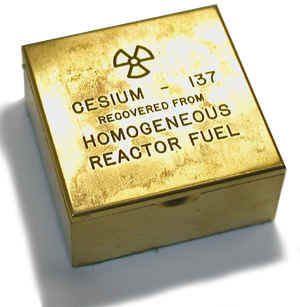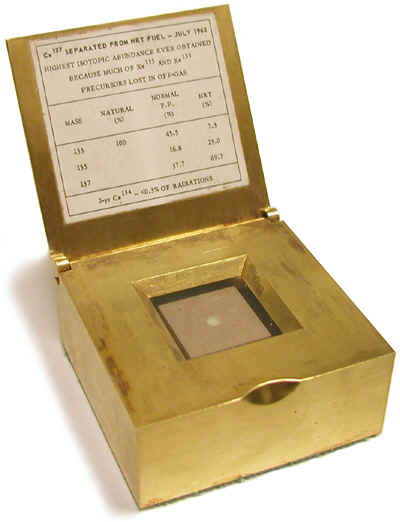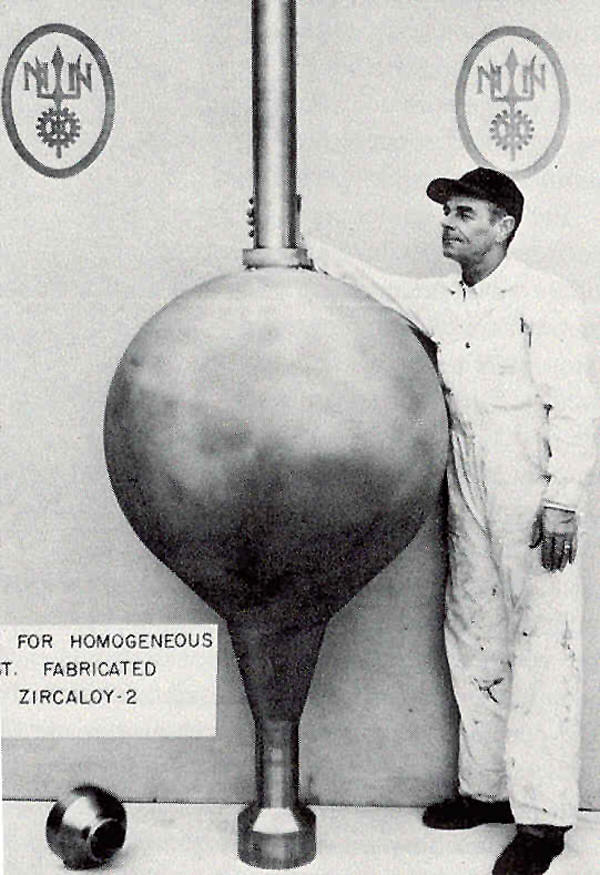Cesium-137 Recovered from Homogeneous Reactor Fuel (1962)

The fuel of the second homogeneous reactor (known as the Homogeneous Reactor Test) built at Oak Ridge National Laboratory (ORNL) consisted of a uranyl sulfate-heavy water solution. Each kilogram of heavy water contained roughly 10 grams of enriched uranium and the solution flowed through the core at 400 gallons per minute. The core, a zircaloy sphere one meter in diameter, was contained within a larger stainless steel pressure vessel.

As was true of the molten salt reactor, the fuel of the homogeneous reactor could be enriched and purified while the reactor continued to operate.
The reactor achieved its first criticality in early 1958 and it operated until 1961. Its purpose was to breed uranium-233 (U-233) from thorium-232 (Th-232) by a process of neutron capture and decay, but the problems it experienced and the beginning of a solid fuel breeder reactor program spelled its doom. The ORNL homogeneous reactor has been described as "perhaps the most exotic nuclear reactor ever built."
The brass container (2 1/4" x 2 1/4" x 1") in the above photographs contains a sample of Cs-137 extracted from the fuel of the reactor after it had ceased operations.
The text on the inside reads "Cs-137 separated from HRT fuel—July 1962. Highest isotopic abundance ever obtained because much of Xe-133 and Xe-135 precursors lost in off-gas.

The photo shows the core for the ORNL homogeneous reactor.
Mass Natural (%) Normal FP (%) HRT (%)
133 100 45.5 7.3
135 16.8 23.0
137 37.7 69.7
2-yr Cs-134 - < 0.3% of radiations
Donated by Dr. Alvin Weinberg.
References
- Alvin Weinberg. personal communication.
- ORNL: The First 50 Years. Oak Ridge National Laboratory Review. Vol. 25 Nos. 3 and 4; 1992.
